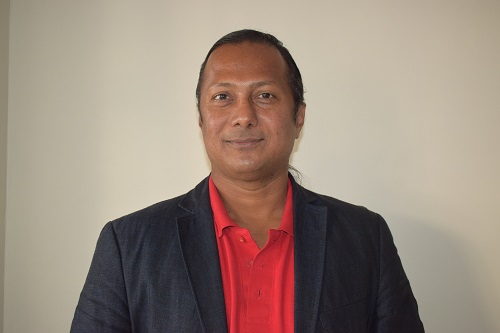Mumbai, Maharashtra, India
The concept of education has evolved over a period, globally. Parents, school authorities as well as Govt. institutions in India are focused towards creating an ecosystem to ensure holistic development of kids. And playing sports ensures just that. The advantages of integrating sports in the school education are vast, and they aren’t just physical benefits.
 |
Mr. Saumil Majmudar – Co-founder & Group CEO, Sportz Village
Mr. Saumil Majmudar – Co-founder & Group CEO, Sportz Village has listed out the following benefits of playing sports in growing kids
Staying Fit and Healthy – Sports is an excellent outlet to make way for the endless energy kids possess, thus increasing overall fitness levels. It also is a great way to overcome the setbacks of sedentary lifestyle and excess screen time which lead to chronic diseases such as diabetes, heart problems, and childhood obesity.
Improving sleep, reduce stress and anxiety – Sports and physical activity releases endorphins in the brain, which are key feel-good transmitters for the mind and body. Sport focuses one’s mind on the task at hand, allowing one to relax, while ensuring a natural sleep pattern which is also key to reducing anxiety.
Develop Socio-emotional Skills – With sports, a child learns to sharpen his/her power of reasoning, managing stressful situations, boost self-esteem and have fun. It also teaches the value of team spirit, proficiency to share victory or defeat.
Learn life skills – Daily sports practice can help children imbibe leadership skills with improved problem-solving and decision-making abilities, qualities like ethics, time management, tolerance, patience, and perseverance.
Overall, children who are physically active are more likely to grow into physically active and emotionally balanced adults. The spirit instilled in them from sport can be carried into their wider academic pathway.
Sports and Physical Education in school curriculum
Schools play a substantial role in a child’s daily physical activity. Sportz Village School’s survey helps prove this point further. There was a 33 % drop in aerobic capacity and 10 % drop in lower body strength in children after the summer break. This was because of the loss of access to play areas provided by schools during the summer.
Thus, the education sector plays the most important role in the overall development of a child. This is also reflected in the deliberate inclusions of sports during curriculum planning. By eliminating the rigid separation between curricular and extracurricular activities, the NEP 2020 acknowledges sports to be equally important as any other subject. As educators, it is necessary to let the learning environments be ‘invaded’ with generous sessions of play, movement, and games – both structured and unstructured.
Sports beyond sports; sports for academics
Combining traditional teaching methods with sports experiential learning sessions has its own advantages. Sports has been used by educational institutes, and can still be creatively used, to teach complex subjects like mathematics, physics, etc, since kids are most receptive while playing. There should be apt tools or methodologies to ensure that children are ‘emotionally’ ready to learn; sports is one such tool.
Play as children’s right, just as education
The UN Convention on the Rights of the Child urges the world to think more seriously about children’s position as citizens and asserts that human rights included in other treaties apply to children too. It demands a holistic look at children’s lives and their perspectives on issues affecting them. One of the issues broadly discussed is Children’s Right to Play, that urges the ecosystem around children to increasingly talk about it.
Role of parents, schools, governments and corporates in promoting sports as education
The growing awareness about the contribution of sports in the lives of children has led parents to encourage them to take up some form of sports or physical activity along with their studies. School-organised sports and physical education programs now form a vital component of social and academic experiences for many students. Although every school has formal sports embedded in their curriculum, better implementation strategies need to be ensured across the length and breadth of the country.
Even the government-led sport programs like Khelo India and Fit India envisages sports development at the grassroot level and sports-integrated learning to help students achieve higher fitness levels. These programs target the entire sports ecosystem, including sports education. Lastly, sports businesses and as a consequence sports education programs are proliferating at an unprecedented rate.
“All work and no play makes Jack a dull boy’ sums it all. Without a balanced approach towards education, a child will not be able to appreciate the other finer aspects of life. Sports is one experiential, life shaping tool that can be used in the holistic education of growing kids. And hence, more than sports being part of education, sports need to be positioned as education.”
Saumil Majmudar adds further, “Through this belief, and a mission of getting 100 million children to play, Sportz Village – world’s leading youth sports platform, is trying to make the world a better place. Sportz Village and its four business units namely Sportz Village Schools, Sportz Village Academies, Sportz Village Xp and Sportz Village Foundation, each cater as sports enabling platforms through the various stages of a child’s development by partnering with brands, schools and corporates.”
(Disclaimer: The above press release comes to you under an arrangement with Newsvoir India and this publication takes no editorial responsibility for the same.)

